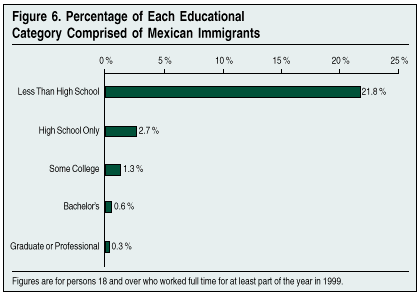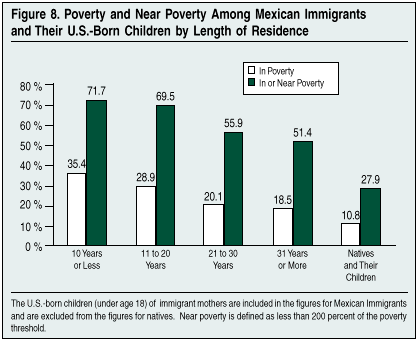Immigration
Mexican immigrants make up a large part of the US population and contribute much to the lower class. However, many of these immigrants are in the country illegally. Many people are against having them in the country illegally and think they should be deported. It is against the law after all, so why would they enter the country illegally in the first place? The truth is, they are in danger of gang violence and harsh conditions that come with the poverty of their corrupt country. It isn't an easy task to just immigrate to the US. That takes time and there is no guarantee that they will be allowed in. So because of the immediate danger people from Mexico enter the country illegally. A large part of immigrants end up entering the country legally, but they overstay their visas. Departments in immigration are of course trying to stop this, but some of there methods may not be very humane.
There have been many debates on what the best plan of action for keeping immigrants out should be. Building a wall is one of the most talked about, however, that doesn't take care of the illegal immigrants that are already in the county. In 2014 illegal immigrants made up about 3.5-3.8 percent of the population. That translates to roughly 12.1 million people. In order to try to catch them, there is an official policy to use children trying to enter the country as "bait".
When children attempt to enter the country they are detained in a shelter. A family member from the US has to come and sponsor the child in order to let them in. For this reason, the government is deliberately keeping children in these shelters for an extended period of time until their family comes to get them. Here is the worst part. As soon as they scan the family members fingerprint and find that they are an illegal immigrant, they are arrested, deported, and separated from their child. It's like immigration is holding children hostage to lure illegal immigrants into a trap and they are still separated from each other. This very situation happened to a 17-year-old boy trying to reconnect with his father. When his father got there, he was immediately deported, and the 17-year-old attempted suicide. Immigration does not care about the effects separating families have on people.
Studies show that separating children from their parents can be psychologically harmful, especially in young children. It is believed that because the children are in these shelters, they are far better off than being back in Mexico. This may not be true. The shelters are in bad condition, and not have a parent makes it even worse. When put under stress, kids need someone to entrust and talk to. Because they don't have this, they don't know how to cope. This affects the development of the brain and puts these kids a high risk of PTSD, anxiety, and depression. This is especially harmful because a lot of the children already have PTSD from bad experiences like gang violence and sexual abuse back home. Stacking all three of these disorders on top of each other can be so difficult to deal with, especially without a family.
Mexicans immigrate to the US for a better life. This includes a job or an education. However, this is no easy task. Even when one has money, resources, and speaks English, getting an education requires a lot of effort. It becomes increasingly difficult for immigrants who may not speak English very well. Having the kind of money to pay for a college education is very rare among Mexican immigrants as well. as you can see in figure 1, some immigrants get by with high school education, but figure two shows that the number of immigrants in or near poverty is very high. When you put the language barrier, money barrier, and the fact that many of these children could have PTSD, depression, and anxiety, the chances of even the slightest bit of success seems very small. Separating children from their families has a lasting effect on them. It is already extremely difficult for these immigrants to support themselves, so taking their family away in despicable, no matter the situation. Mexican immigrants are an important part of the US population and we should be uplifting and helping them, not separating them from their families.
 |
| Figure 1 |
 |
| Figure 2 |
Huffington Post
Buissnes inisder
link
Link : figures 1 and 2
USA Today
